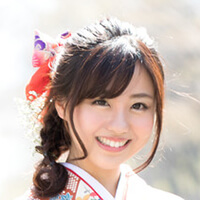
I know that “watashi” is “I” in Japanese. But today, I heard my Japanese friend said “boku” instead of “watashi”. Are there many ways of saying “I” in Japanese?
Answer by Japanese teacher

(1)Formal and informal, gender-free
Watashi
(2)Highly formal gender-free
Watakushi
(3)Informal, male (sophisticated, educated image)
Boku
(4)Informal, male (tough guy image)
Ole
(5)Informal, female
Atashi あたし
Explanation
You’re right. There are many ways of saying “I” in Japanese depending on the situation, gender, and self-image that you want to project to the listener.
The most standard and gender-free term would be “watashi”. You would have learned it your very first Japanese lesson. It can be used both in formal and informal situations.
“Watakushi” is a highly formal “I” usually used in business settings. Some examples are politicians, CEOs, or other public relations figures using it in making public speeches.
“Boku” is mainly used by men in informal settings such as among friends. The kanji
“Ole” is mainly used by older men in informal settings. It gives a “tough guy” image and shows comradeship among the guys. However, it is not a polite term to begin with. I remember I had a male student once. At his first lesson, he started his self-introduction with “Hajimemashite. Ole wa xxx desu”. I was totally shocked! I later explained to him that “ole” is not so appropriate in the formal setting. Since a classroom is considered a formal setting and we are doing self-introduction, it is more polite to use “watashi” instead.
“Atashi” is an informal form mainly used by girls. It has a kind of “cute” nuance to it. Be careful if you want to use this.
Although there are so many forms of “I”, sometimes the Japanese don’t use it at all.
Too many “watashi” in a sentence sounds like “me, me, all about me!”
So when the subject is clear and everyone knows what you’re talking about, you can omit it.
[kanren id=”432″]
Now that you know about the many types of “I”, use them correctly (or omit it).



